Mingcui Lake National Wetland Park
Mingcui Lake National Wetland Park
Yinchuan Mingcuihu National Wetland Park is located in Zhangzheng Town, Xingqing District, Yinchuan City, Ningxia. It is 9 kilometers away from Yinchuan City and 3 kilometers away from the Yellow River. It is the third National Wetland Park named by the State Forestry Administration after Qinhu National Wetland Park in Jiangsu and Xixi National Wetland Park in Hangzhou. It is also the first National Wetland Park in the Yellow River Basin and the western region. It enjoys the reputation of "one of the six most beautiful wetland parks in China".
Scenic spot construction
Mingcui Lake is located at 106 22 east longitude and 38 3 north latitude. It is the eastward migration of the ancient Yellow River. Ordos platform uplifts the lake beach landform of the Yellow River alluvial plain, which integrates the Loess Plateau, Yellow River, lakes, reeds, wetlands and other landscapes. The average elevation is 1,100 meters. It is bounded by Yinheng Road in the north, Yongning Central Drainage Channel in the south, Huinong Canal in the East and Hanyan Canal in the west. The lake is surrounded by a large area of fish ponds and paddy fields, with few inhabitants. The town of Zhangzheng is one kilometer away from Mingcui Lake. Mingcui Lake is the most important wetland ecological region in the eastern part of Yinchuan City because of its special and important geographical location.
Characteristics of scenic spots
Here the lake lights play willows, tobacco trees smoke, birds gather, fish leap in the meantime, looking at the water Heron flying up, looking at the wind and lotus has always turned over. The stuffing is vigorous and beautiful in the south of the Yangtze River. It suddenly gathers in the waves of reeds and waves. There are 109 kinds of natural plants and 97 kinds of birds in the lake. Among them, there are national first-class protected animals such as black stork, Chinese autumn sand duck, white-tailed sea eagle, big bustard, national second-class protected animals such as swan, swan, mandarin duck and kite. Every spring and summer, thousands of birds inhabit and multiply here. Tourists come here, luxuriant boats, winding paths, maze birds watching, happy and forget to return, and there are no boundaries at a glance. Poetry is picturesque. Mingcui Lake has developed into a tourist attraction with cultural, interesting and rich ecological characteristics.
Yinchuan Mingcuihu National Wetland Park is located in Zhangzheng Town, Xingqing District, Yinchuan City, Ningxia, 9 kilometers away from Yinchuan City and 3 kilometers away from the Yellow River. It is the third National Wetland Park named by the State Forestry Administration after Qinhu National Wetland Park in Jiangsu and Xixi National Wetland Park in Hangzhou. It is also the first National Wetland Park in the Yellow River Basin and the western region. It enjoys the reputation of "one of the six most beautiful wetland parks in China".
•
Yinchuan Mingcuihu National Wetland Park is located in Zhangzheng Town, Xingqing District, Yinchuan City, Ningxia. It is 9 kilometers away from Yinchuan City and 3 kilometers away from the Yellow River. It is the third National Wetland Park named by the State Forestry Administration after Qinhu National Wetland Park in Jiangsu and Xixi National Wetland Park in Hangzhou. It is also the first National Wetland Park in the Yellow River Basin and the western region. It enjoys the reputation of "one of the six most beautiful wetland parks in China".
Mingcui Lake is located at 106 22 east longitude and 38 3 north latitude. It is the eastward migration of the ancient Yellow River. Ordos platform uplifts the lake beach landform of the Yellow River alluvial plain, which integrates the Loess Plateau, Yellow River, lakes, reeds, wetlands and other landscapes. The average elevation is 1,100 meters. It is bounded by Yinheng Road in the north, Yongning Central Drainage Channel in the south, Huinong Canal in the East and Hanyan Canal in the west. The lake is surrounded by a large area of fish ponds and paddy fields, with few inhabitants. The town of Zhangzheng is one kilometer away from Mingcui Lake. Mingcui Lake is the most important wetland ecological region in the eastern part of Yinchuan City because of its special and important geographical location.
Mingcui Lake is divided into two lakes, north and south. Its ecological system is complete. The Lake area and its surrounding rivers, lakes, swamps, irrigation canals and paddy fields are connected, with abundant water and fertile soil. The water resources of Mingcui Lake belong to the Yellow River water system, where abundant water resources are an important part of the comprehensive management of ecological environment construction. The Lake area accounts for 80% of the lake area. Irrigation and drainage systems are developed. There are Hanyan Canal excavated in the Han Dynasty in the West and Huinong Canal excavated in the Qing Dynasty in the east. The water source is stable and the water quantity is abundant. Basically, the wetland ecological environment is pleasant. Industrial control, flat Lake bottom, because its water system is not polluted by industry, less human damage factors, transparent lake water throughout the year, good water quality, basically intact to maintain the natural ecological environment. Mingcui Lake, as a typical wetland ecosystem, is an ecological support system suitable for bird reproduction, habitat and survival and development, which is composed of marshes, lake water and reeds. A large area of reeds on the east side of the lake attracts a large number of waterfowl to inhabit, and there are many reeds, cattails and cattails in the marshes around the lake. The abundant small fish and shrimps here become the golden zone for birds to feed on. The islands, reeds and wharfs in the center of the lake are good places for birds to inhabit at night, while the swamps are good places for birds to hunt for food. A natural, suitable, harmonious and ideal bird habitat and migratory bird post station has been formed, which provides excellent natural resources for the construction of bird research and ornamental bases in Yinchuan and the west.
Mingcuihu National Wetland Park in Yinchuan is the third National Wetland Park named by the State Forestry Administration after Xixi National Wetland Park in Hangzhou and Qinhu National Wetland Park in Jiangsu.
At present, Mingcui Lake has emerged from more than 700 natural wetland protection areas and 145 National Wetland Park test sites, and has become the first 12 National Wetland Parks formally accepted by the State Forestry Administration. It was officially selected as "the best wetland for ecological protection in China" by the Wetland Center of the State Forestry Administration, Wetland International - China Office, People's Daily - China Economic Weekly, and occupied one sixth of the seats in the country. Now it is a national AAAA-level tourist attraction and enjoys the reputation of "one of the six most beautiful wetland parks in China". It is "National Leisure Agriculture and Rural Tourism Demonstration Site" and "National Youth Outdoor Sports Camp".
Since its opening in 2005, the scenic spot has invested 200 million yuan and received more than 600,000 tourists. Operating income has increased from less than one million at the beginning of business to over 50% annually up to now. Relevant data show that the scenic spot has changed from the initial situation of poor utilization ability of current assets, large liabilities and difficult operation. By striving for special funds, enterprises can adjust their management ideas, change their management concepts, intensify propaganda and resolve the debt crisis. Lower Valley of the Ring Towards the Stable Growth Period of Products and Brands. A National Wetland park, which focuses on wetland protection and upholds the cause of public welfare protection, is moving towards the goal of creating wetland leisure culture and brand building, and innovating wetland leisure products, and is experiencing the process of changing cocoons into butterflies.
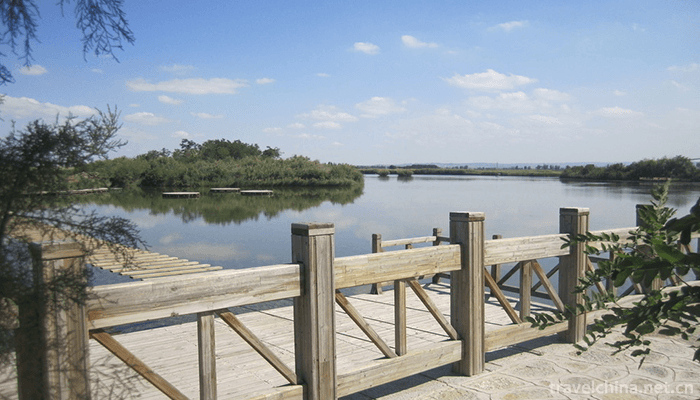
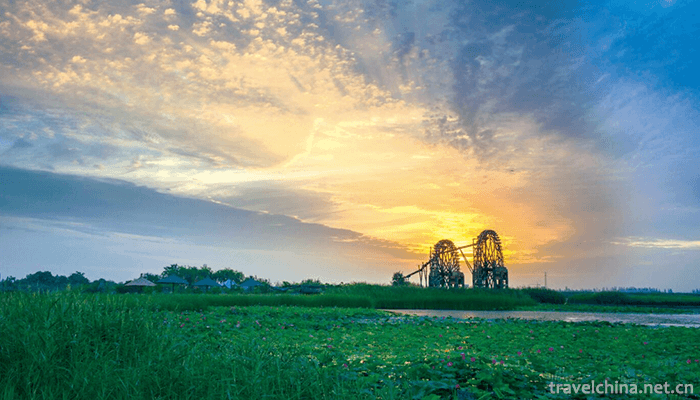
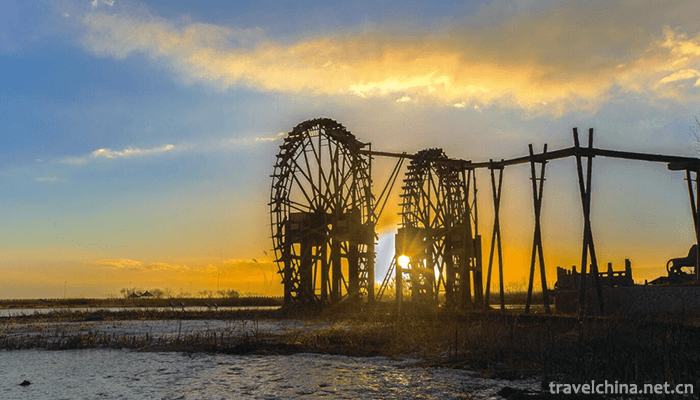
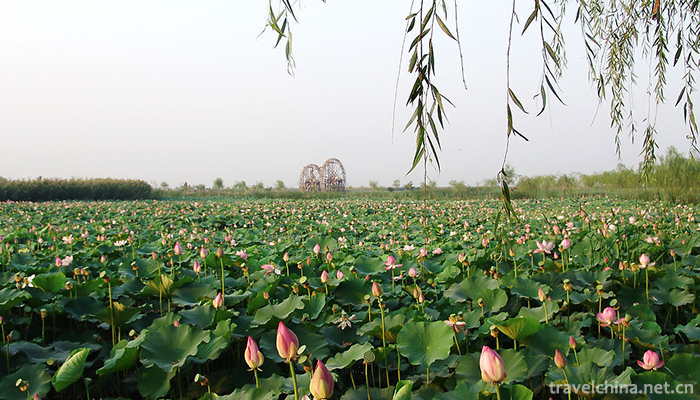
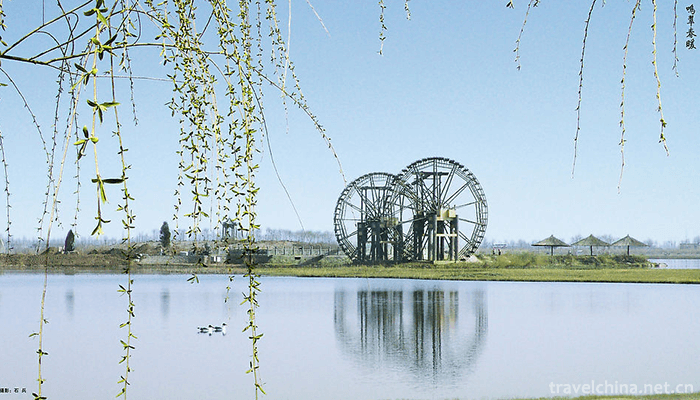
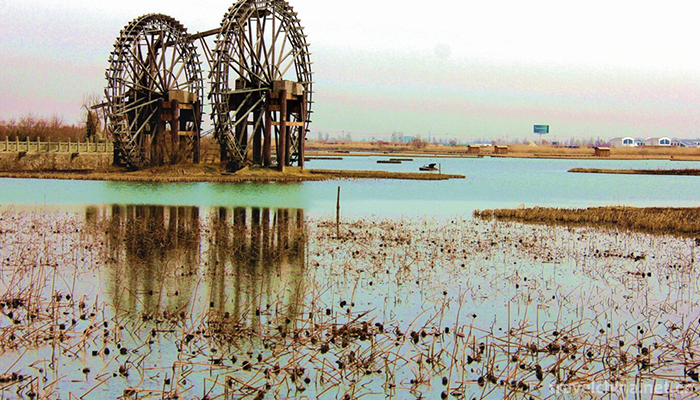


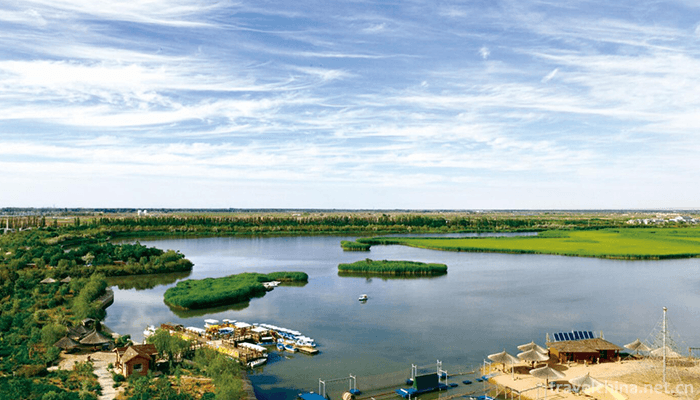
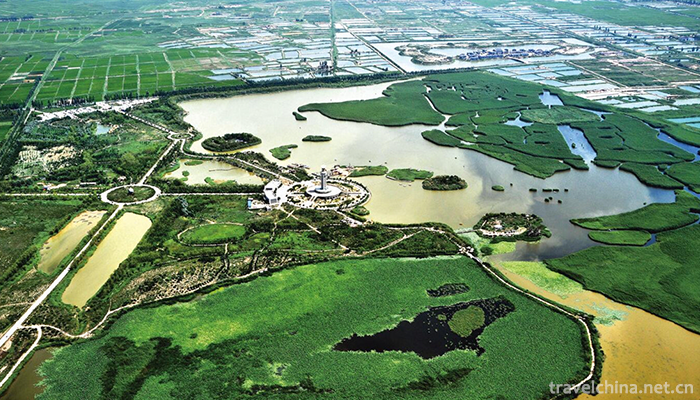
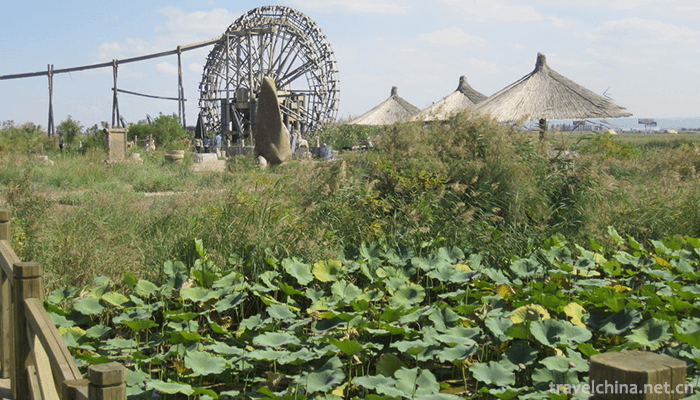
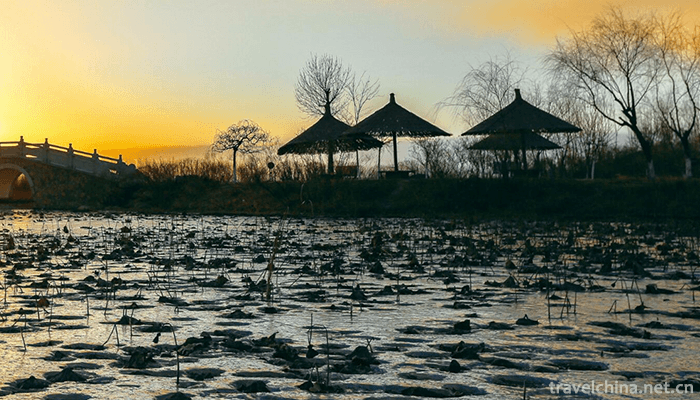

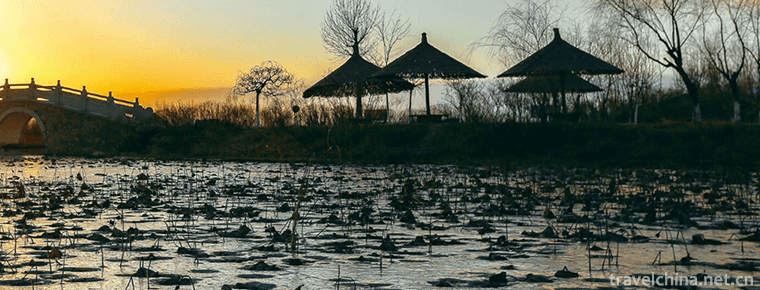
-
1.Daocheng Yading County Ganzi Sichuan China
Aden Scenic Spot is located in Riwa Township, Daocheng County
Time 2018-10-12 -
2.Chinese Elk Garden Scenic Spot
Jiangsu Dafeng Elk National Nature Reserve is located in the Yellow Sea coast, with a total area of 78,000 hectares, including 2668 hectares in the core area
Time 2018-12-06 -
3.Peace Hotel Shanghai
Peace Hotel is a landmark building in Shanghai. Located at No. 20 East Nanjing Road, Huangpu District, Shanghai, it is the first modern building in the history of modern architecture in Shanghai
Time 2018-12-16 -
4.Senbora Resort Forest Scenic Area
Senbora, a landscape world in ancient forests, a paradise of pleasure water under glacial ruins, a national 4A-class tourist attraction, is located at the exit of Fogang Expressway in Fogang County
Time 2019-02-07 -
5.Kazakh Karakol Leha
On May 23, 2011, Kazakh Karakol Kazakh was listed in the third batch of national intangible cultural heritage list with the approval of the State Council.
Time 2019-05-02 -
6.Jiashan Tian Ge
Jiashan Tiange is a local folk song in Zhejiang Province. It belongs to a variety of Wuge songs. It is a unique form of ballad in Zhejiang Province. It is a song that workers sought comfort and expres
Time 2019-05-05 -
7.Block door La shou men
Stopper Gate is one of the traditional Chinese boxing schools. It originated in Shaolin and was introduced to Tianjin in the early Qing Dynasty. It originated in Sichuan. It was the earliest southern
Time 2019-05-10 -
8.Shaoyuan mythological group
Shaoyuan myth group is one of the ancient Chinese myths and legends. Refers to the general name of the creation myths and mythological prototypes circulated in Shaoyuan Town, Jiyuan City, Henan Provin
Time 2019-06-14 -
9.Ten times of music
Shifan music is a traditional instrumental music spread by Hakkas in Fuzhou and Western Fujian Province. It has been circulated since the middle of Daoguang in the Qing Dynasty. The origin of Shifan m
Time 2019-06-15 -
10.Chengdu University of Technology
Chengdu University of Technology was founded on March 15, 1956 and approved by the State Council. On March 27, the Ministry of Higher Education and the Ministry of Geology jointly issued a paper based
Time 2019-08-31 -
11.Wuliangye distillery
Wuliangye Group Co., Ltd. is located at the intersection of Jinsha River and Minjiang River, the first city of the Yangtze River -- "Jiudu" Yibin. It is a modern corporate group with Wuliangye series liquor production as its main business
Time 2020-10-16 -
12.A summary of Panzhihua
In 2019, the GDP of Panzhihua will reach 101.013 billion yuan, an increase of 6.3% over the previous year in terms of comparable prices. In terms of industries, the added value of the primary industry was 9.168 billion yuan, an increase of 3.4%; the added value of the secondary industry was 55.074 billion yuan, an increase of 5.7%; the added value of the tertiary industry was 36.771 billion yuan, an increase of 8.5%.
Time 2020-12-14